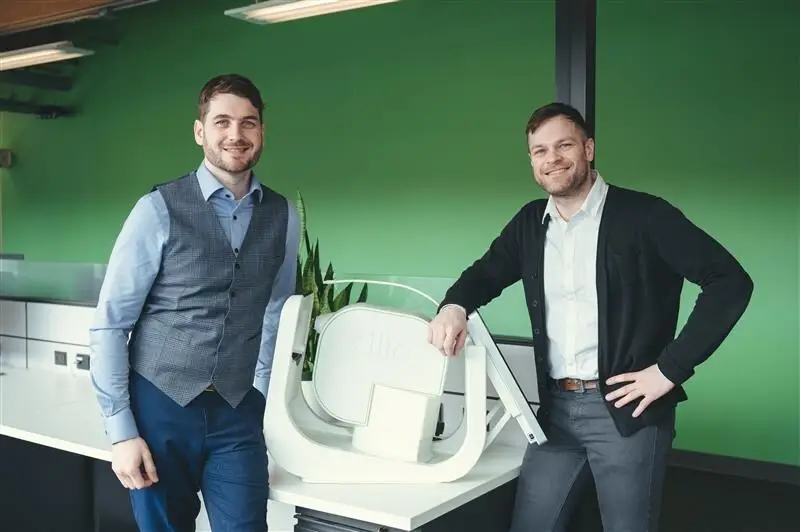Underscoring its commitment to expanding access to cell and gene therapy, NMDP/Be The Match® presented research today at the American Society of Hematology (ASH) Annual Meeting & Exhibition, which demonstrated that the use of post-transplant cyclophosphamide (PTCy) based graft-versus-host disease (GvHD) prevention significantly reduces the risk of transplant across the human leukocyte antigen (HLA) barrier and has the potential to level the playing field for patients with mismatched donors.
The study shows the practice-changing potential of using mismatched unrelated donors (MMUD) to expand access to all patients regardless of ancestry. For populations currently facing the lowest odds of finding a fully matched donor, this could result in a nearly three-fold increase in the likelihood of securing a suitable donor and offering cell transplantation as a viable, life-saving therapy.
“Historically, transplant outcomes following MMUD hematopoietic cell transplantation (HCT) using calcineurin inhibitor (CNI)-based GvHD prophylaxis have been poor,” said Dr. Jeffery Auletta, Senior Vice President, NMDP/Be The Matchand Chief Scientific Director, CIBMTR® (Center for International Blood and Marrow Transplant Research®). “However, PTCy has transformed the allogeneic HCT landscape, enabling successful use of mismatched related and unrelated donor HCT by transcending the HLA barrier. This research not only confirms the efficacy of PTCy, but also alludes to its promise to provide allogeneic HCT to essentially all patients irrespective of their ancestry. That promise is a message of hope to our patients.”
The study, “Post-Transplant Cyclophosphamide Eliminates Disparity in GvHD-Free, Relapse-Free Survival and Overall Survival between 8/8 Matched and 7/8 Mismatched Unrelated Donor Hematopoietic Cell Transplantation in Adults with Hematologic Malignancies,” shows that this approach could significantly expand access to allogeneic HCT for patients of various ancestries, as finding a fully matched donor is no longer crucial for successful outcomes. It also suggests that although 8/8 URD HCT remains the best option if available, a 7/8 URD and haploidentical-related BMT donor are viable alternatives that warrant further comparative study. In summary, study results indicated that with PTCy GvHD prophylaxis:
- No discernable differences in GvHD-free, relapse-free survival (GRFS) or overall survival (OS) were noted for patients receiving either 8/8 or 7/8 URD HCT.
- 8/8 URD HCT showed a lower rate of moderate/severe chronic GvHD compared to 7/8 URD HCT.
- 8/8 URD HCT had better GRFS and OS than haploidentical-related HCT, mainly due to higher rates of non-relapse mortality (NRM) and chronic GvHD in patients who received a haploidentical-related HCT.
- Larger numbers for the 7/8 URD HCT group will be needed in order to compare outcomes between 7/8 URD and haploidentical-related HCT.
The study was designed to determine if PTCy can eliminate disparities in GRFS and OS between matched (8/8) and single mismatched (7/8) URD compared to haploidentical (half matched)-related donors. Patient data included first unrelated or haploidentical-related donor HCTs conducted in the US between 2017 and 2020. The study population included adult (age ≥18y) patients with acute lymphoblastic leukemia (ALL), acute myeloid leukemia (AML), or myelodysplastic syndromes (MDS) undergoing their first 8/8 (n=1517 patients) or 7/8 (n=540 patients) URD or haploidentical (n=2772 patients) HCT and receiving PTCy.
The results of the study are being presented at the ASH Annual Meeting & Exhibition, Session: 722, Allogeneic Transplantation: Acute and Chronic GVHD, Immune Reconstitution: Advancements in GVHD Management, today at 11:45 am.
About NMDP/Be The Match
NMDP/Be The Match® is the leading global partner working to save lives through cellular therapy. With 35 years of experience managing the most diverse registry of potential unrelated blood stem cell donors and cord blood units in the world, NMDP/Be The Match is a proven partner in providing cures to patients with life-threatening blood and marrow cancers and diseases. Through their global network, they connect centers and patients to their best cell therapy option—from blood stem cell transplant to a next-generation therapy—and collaborate with cell and gene therapy companies to support therapy development and delivery through Be The Match BioTherapies®. NMDP/Be The Match is a tireless advocate for the cell therapy community, working with hematologists/oncologists to remove barriers to consultation and treatment, and supporting patients through no-cost programs to eliminate non-medical obstacles to cell therapy. In addition, they are a global leader in research through the CIBMTR® (Center for International Blood and Marrow Transplant Research®)—a collaboration with Medical College of Wisconsin, investing in and managing research studies that improve patient outcomes and advance the future of care.

